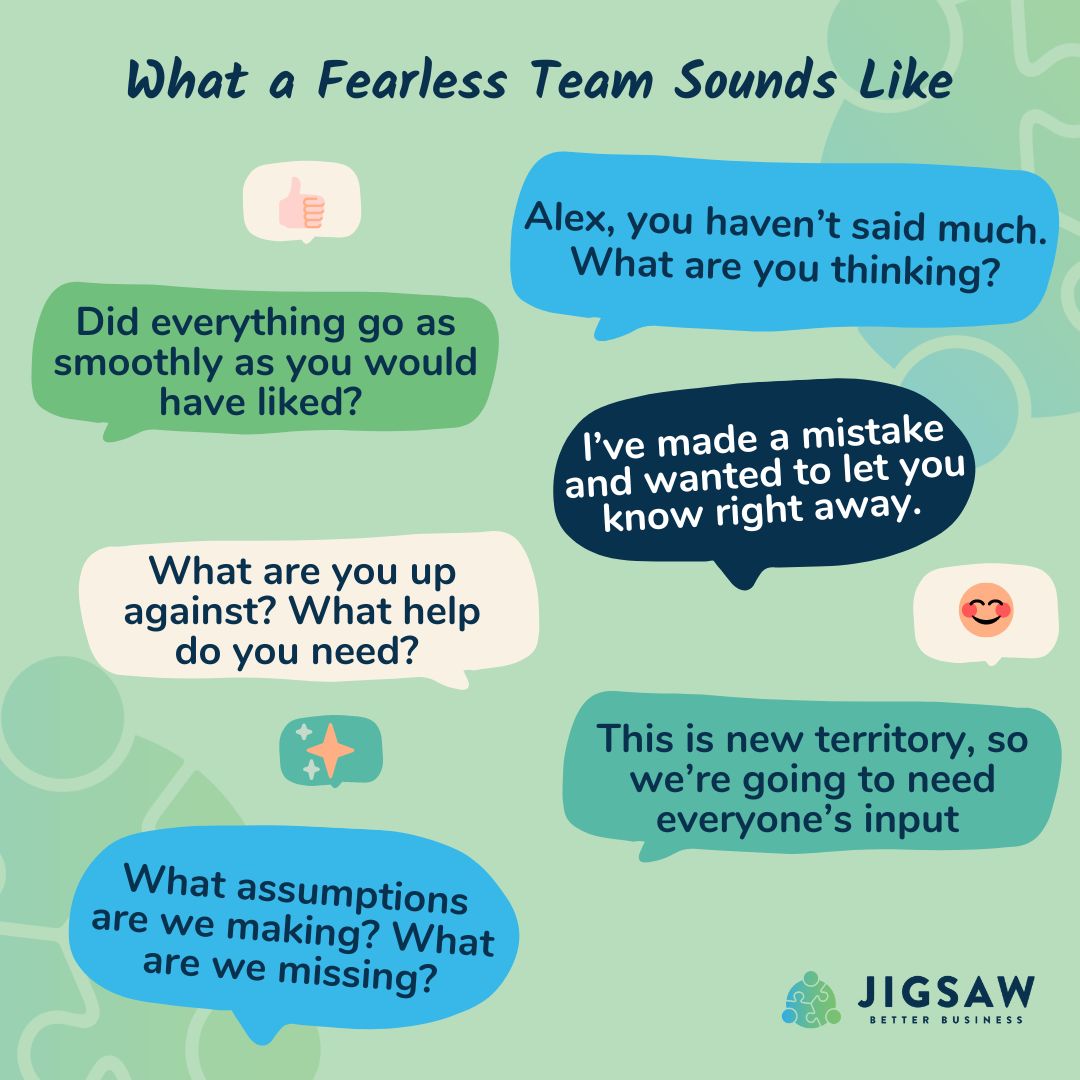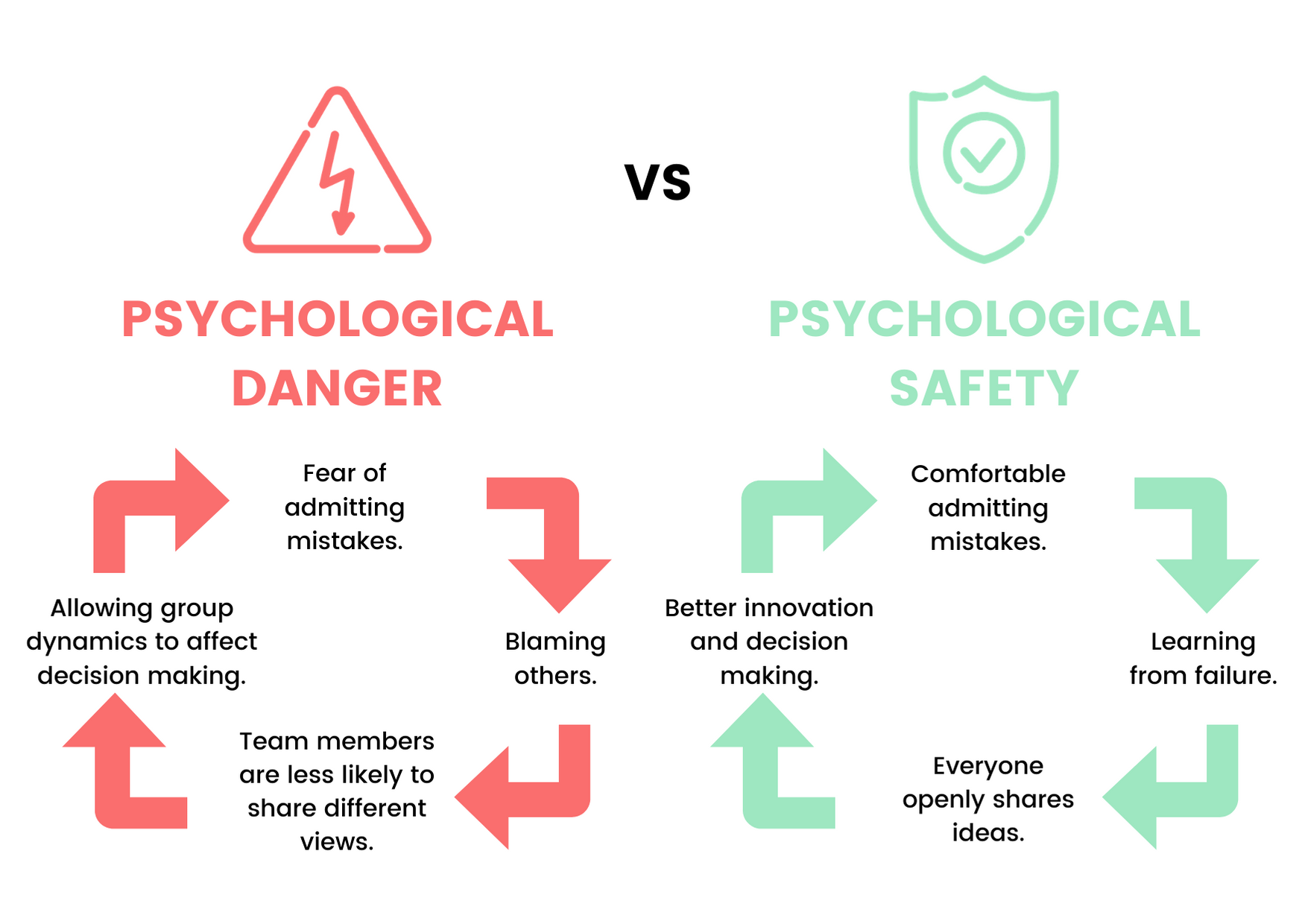In our constantly changing world, where many products and services can be copied or automated, the thing that will keep your business competitive is your people. Neglecting this side of the business means taking a big risk.
We can partner with you to develop a fearless culture, where problem-solving, teamwork, and leadership combine for continuous improvement of the business. As a board member of Tesla is credited as saying to Elon Musk, nobody comes up with a great idea while being chased by a tiger! Fear is not conducive to an inclusive, innovative, engaged team environment.
Your culture is not the solution to all business problems, but by creating a fearless culture, you are creating the right soil in which the seeds of your business can grow.
What is Psychological Safety?
Psychological Safety is a climate in which people feel comfortable expressing and being themselves in their team. It is a belief that one will not be punished or humiliated for speaking up with ideas, questions, concerns or mistakes.
It’s a condition in which one feels included, safe to learn, safe to contribute, and safe to challenge the status quo, without fear of being embarrassed, marginalized or punished in some way.
The concept was first identified by Dr. Amy Edmondson in 1999, and so there are over two decades of research behind it.
Why is this important?
Having a more fearless team culture will lead to better decision making, with different perspectives and difficult issues being discussed in the open in a productive way.
Mistakes can be learned from, rather than hidden or ignored. The most highly successful companies don’t look for only good news; they learn from mistakes and reduce the likelihood of repeating the same mistakes.
Workarounds are reduced in psychologically safe cultures, meaning inefficiencies are addressed and reduced.
Team members feel more willing to help each other and take initiative. They hold each other accountable and take ownership over their work, rather than defer to authority and expect to always be told what to do.
Creating an environment in which everyone feels their voice matters will lead to greater feelings of engagement, belonging, and inclusion, which in turn improves retention.

